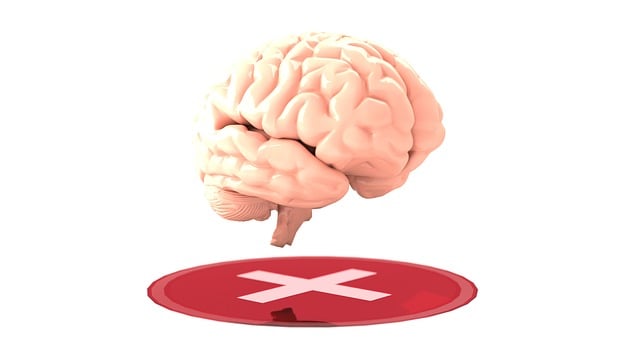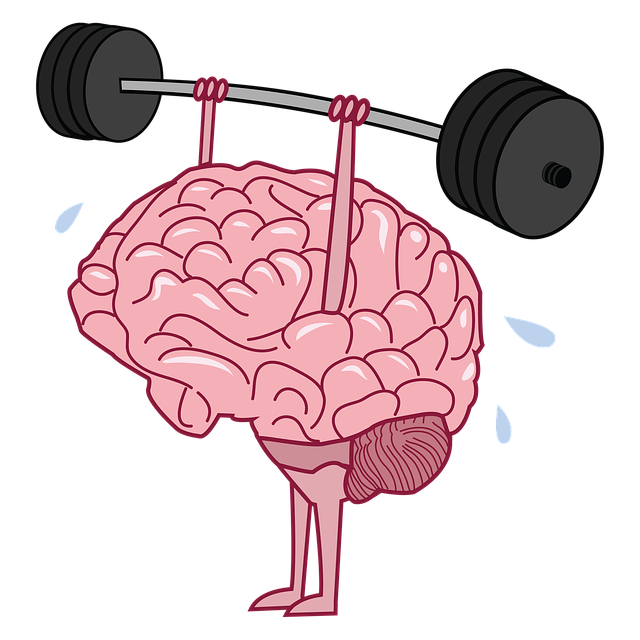Public awareness campaigns leveraging various media platforms and creative strategies significantly shape societal attitudes towards mental health in young children, emphasizing early intervention and therapy, particularly Acceptance and Commitment Therapy (ACT). These campaigns promote coping skills development through education and open dialogue, advocate for accessible mental health policies, and foster a culture of openly discussing mental well-being. ACT equips kids with self-awareness, coping skills, and value-driven behavior, enhancing emotional intelligence and building resilience. Successful campaigns require strategic, child-focused content creation across multiple platforms, as seen in the Mental Wellness Podcast Series. Evaluating campaign impact through metrics like reach, engagement, behavior change, and qualitative feedback ensures effectiveness and guides future improvements in therapy options for young children.
Public awareness campaigns play a pivotal role in shaping societal attitudes, especially regarding mental health. This article explores the development of such campaigns with a focus on young children’s wellbeing. We delve into the integration of Acceptance and Commitment Therapy (ACT) as a powerful tool to foster acceptance and commit to valued actions. By examining effective strategy design and evaluation metrics, we aim to maximize the impact of these campaigns. Understanding mental health awareness is crucial for creating supportive environments for young minds through evidence-based therapy approaches.
- Understanding Public Awareness Campaigns for Mental Health
- The Role of Acceptance and Commitment Therapy (ACT) in Young Children's Wellbeing
- Designing Effective Campaign Strategies for Maximum Impact
- Measuring Success: Evaluation Metrics for Public Awareness Campaigns
Understanding Public Awareness Campaigns for Mental Health

Public awareness campaigns play a pivotal role in shaping societal attitudes towards mental health, particularly when targeted at young children. These initiatives aim to foster an environment where mental wellness is prioritized and stigmatization is reduced. By utilizing various media platforms and creative strategies, campaigns can effectively communicate the importance of early intervention and therapy, such as Acceptance and Commitment Therapy (ACT), for managing mental health issues.
One key aspect of these campaigns is promoting coping skills development through education and open dialogue. They can shed light on common mental health challenges faced by children and offer practical solutions, empowering both young individuals and their caregivers. Moreover, engaging the community through mental health policy analysis and advocacy ensures that policies reflect the needs of vulnerable populations, making therapy more accessible for young children who may struggle with anxiety, depression, or other conditions. This holistic approach, complemented by initiatives like mental wellness podcast series production, can contribute to a culture where mental health is openly discussed and supported.
The Role of Acceptance and Commitment Therapy (ACT) in Young Children's Wellbeing

Acceptance and Commitment Therapy (ACT) is a powerful approach that can significantly benefit young children’s wellbeing. This therapy encourages kids to accept their emotions and thoughts without judgment, fostering a sense of self-awareness. By learning to observe their feelings, children develop coping skills essential for managing mood swings and reducing anxiety. ACT promotes values-driven behaviour, helping them make choices aligned with their personal goals and aspirations, which is crucial for their overall development.
Incorporating conflict resolution techniques into ACT allows young individuals to navigate interpersonal challenges effectively. This early exposure to healthy conflict management prepares them for social interactions, enhancing their emotional intelligence. By combining ACT with the development of coping skills, children gain valuable tools to handle stress and difficult emotions. Such an approach not only improves their current wellbeing but also equips them with resilience for future mental health maintenance.
Designing Effective Campaign Strategies for Maximum Impact

Designing effective public awareness campaigns requires a deep understanding of the target audience and the message you aim to convey. When it comes to promoting therapy for young children, such as Acceptance and Commitment Therapy (ACT), strategizing with a child-centric approach is paramount. This involves creating engaging content that resonates with both children and their caregivers, ensuring accessibility and appeal across diverse platforms.
Integrating concepts like inner strength development and self-care practices within these campaigns can significantly enhance their impact. A well-crafted Mental Wellness Podcast Series Production, for instance, can provide valuable insights while entertaining, fostering open conversations about mental health. By combining compelling narratives with practical tips, these campaigns not only increase awareness but also empower young minds to navigate life’s challenges with resilience and self-acceptance.
Measuring Success: Evaluation Metrics for Public Awareness Campaigns

Evaluating the success of public awareness campaigns is crucial for understanding their impact and identifying areas for improvement. Metrics such as reach, engagement, and behaviour change are essential indicators of a campaign’s effectiveness. In the context of raising awareness about therapy options like Acceptance and Commitment Therapy (ACT) for young children, tracking the number of parents seeking Trauma Support Services or enrolling in programs that enhance Coping Skills Development can be significant measures. These metrics provide insights into how well the campaign has reached its target audience and fostered a positive shift in their emotional intelligence and decision-making processes.
Additionally, qualitative feedback from participants through surveys or focus groups offers valuable insights into the perceived benefits of the campaign. By collecting such data, organizers can assess whether the campaign has successfully conveyed the potential of ACT to support young children’s mental health and well-being. This evaluation process is not just about assessing short-term outcomes but also understanding the long-lasting impact on communities, ensuring that public awareness campaigns are genuinely making a difference in people’s lives.
Public awareness campaigns play a pivotal role in promoting mental health, especially among young children. By integrating therapeutic approaches like Acceptance and Commitment Therapy (ACT), these campaigns can effectively foster wellbeing and resilience. Strategic design and robust evaluation metrics are key to maximizing impact, ensuring that efforts translate into tangible improvements in mental health outcomes for the target population. Through continuous learning and adaptation based on evaluation results, public awareness initiatives can evolve to meet the evolving needs of young minds.














